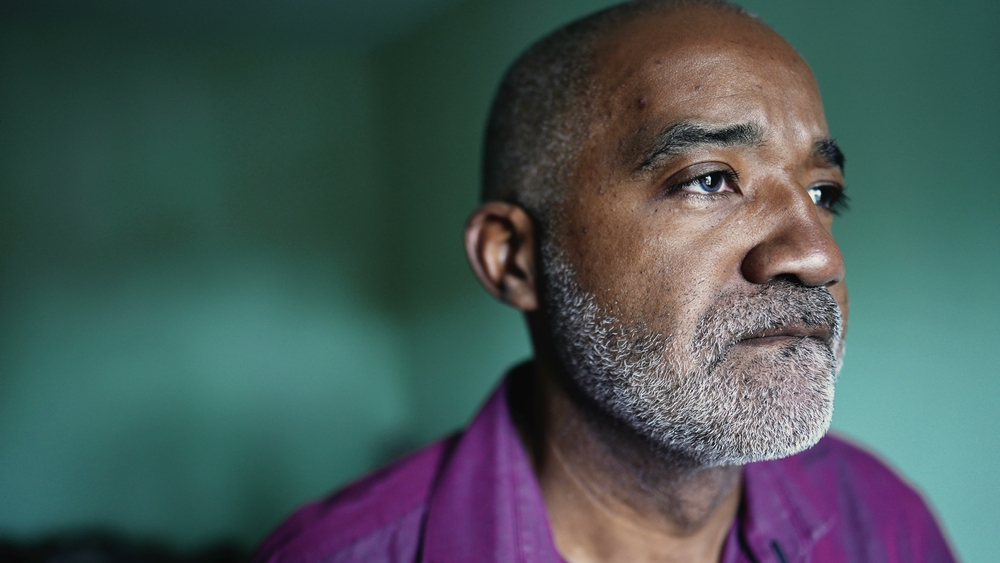
Depression among men over 50 is rising—but many still suffer in silence. Aging brings life transitions like retirement, health changes, or loss of purpose that quietly chip away at mental health. Yet stigma, pride, and outdated beliefs about masculinity often keep men from speaking up. The result: undiagnosed depression, hidden isolation, and higher suicide risk. Understanding the signs—and breaking the silence—can save lives.
1. Retirement Can Create a Loss of Identity
Work often defines a man’s sense of worth, structure, and purpose. When retirement hits, that daily validation disappears almost overnight. Many men struggle to replace that role, leading to feelings of uselessness or loss of direction. Without meaningful new routines, loneliness and hopelessness can set in. Redefining identity through hobbies, volunteering, or mentoring restores purpose and self-esteem.
2. Health Problems Amplify Emotional Strain
Chronic illnesses like heart disease, diabetes, or arthritis become more common after 50. These physical limitations can erode independence and trigger frustration or shame. Untreated depression is common in men managing long-term conditions. Pain and fatigue often mask emotional distress, making it harder to spot. Integrating mental health care into regular checkups ensures issues aren’t overlooked.
3. Social Circles Often Shrink After Midlife
Friendships can fade as men retire or lose touch with work colleagues. Unlike women, men are less likely to maintain close emotional networks. Fewer social outlets mean fewer chances to share struggles or seek support. Rebuilding connections through clubs, fitness groups, or online communities helps reverse the trend.
4. Many Men Still Hide Symptoms Behind Anger or Alcohol
Instead of expressing sadness, men often channel depression through irritability, drinking, or overwork. These “acceptable” coping methods mask the true problem. NIMH warns that emotional withdrawal and substance use are key red flags. Yet families and doctors may misread them as personality changes, not mental illness. Recognizing these disguised signs is crucial for early help.
5. Stigma Still Silences Conversations
Despite progress in mental health awareness, older generations were raised to equate strength with silence. Many men fear being labeled weak if they admit emotional struggles. This mindset prevents them from seeking therapy or medication that could offer relief. The National Alliance on Mental Illness stresses that education and peer support groups reduce stigma. Encouraging open dialogue reframes help-seeking as courageous, not shameful.
6. Relationship Shifts Can Deepen Loneliness
Divorce, widowhood, or children moving away leave many men emotionally adrift. Without daily companionship, they may lose motivation and neglect self-care. Loneliness can spiral into depression quickly, especially when men hesitate to ask for support. Regular social interaction—even casual—improves mood and outlook. Prioritizing connection is a powerful antidote to emotional decline.
7. Therapy and Medication Offer Proven Relief
Modern treatments make recovery possible at any age. Cognitive behavioral therapy (CBT), antidepressants, and support groups all show strong results in men over 50. The key is recognizing depression as a medical condition, not a character flaw. Combining medical and lifestyle strategies—like exercise, sunlight, and diet—enhances outcomes. Accessing care early prevents years of hidden suffering.
8. Family Members Can Help Spot Warning Signs
Loved ones often notice changes first—withdrawal, irritability, or risky behavior. Gentle check-ins and nonjudgmental questions open doors to conversation. Suggesting a primary care visit or mental health screening can start the process. Supporting men with patience and empathy reduces resistance. Healing begins when silence ends.
Breaking the Silence Is a Sign of Strength
Depression after 50 affects millions of men—but it’s far from hopeless. Recognizing disguised symptoms and seeking professional help turns the tide. Talking openly about mental health builds connection, resilience, and hope. The strongest step a man can take is admitting he needs support—and asking for it.
Do you think men over 50 still feel pressure to stay silent about mental health? Share your thoughts or experiences in the comments—your voice could help someone open up.
You May Also Like…
- Depression After 70 Disguised as Fatigue or Forgetfulness
- Medicare’s Mental Health Expansion Sounds Great—Until You See Who’s Still Left Out
- Are Mental Health Apps Actually Helping—or Just Another Subscription Drain?
- Times Have Changed: 10 Ways Boomers Lived That Don’t Exist Today
- The Silent Stressor: Why Clutter Is Wrecking Your Mental Health at Home




.png?w=600)


